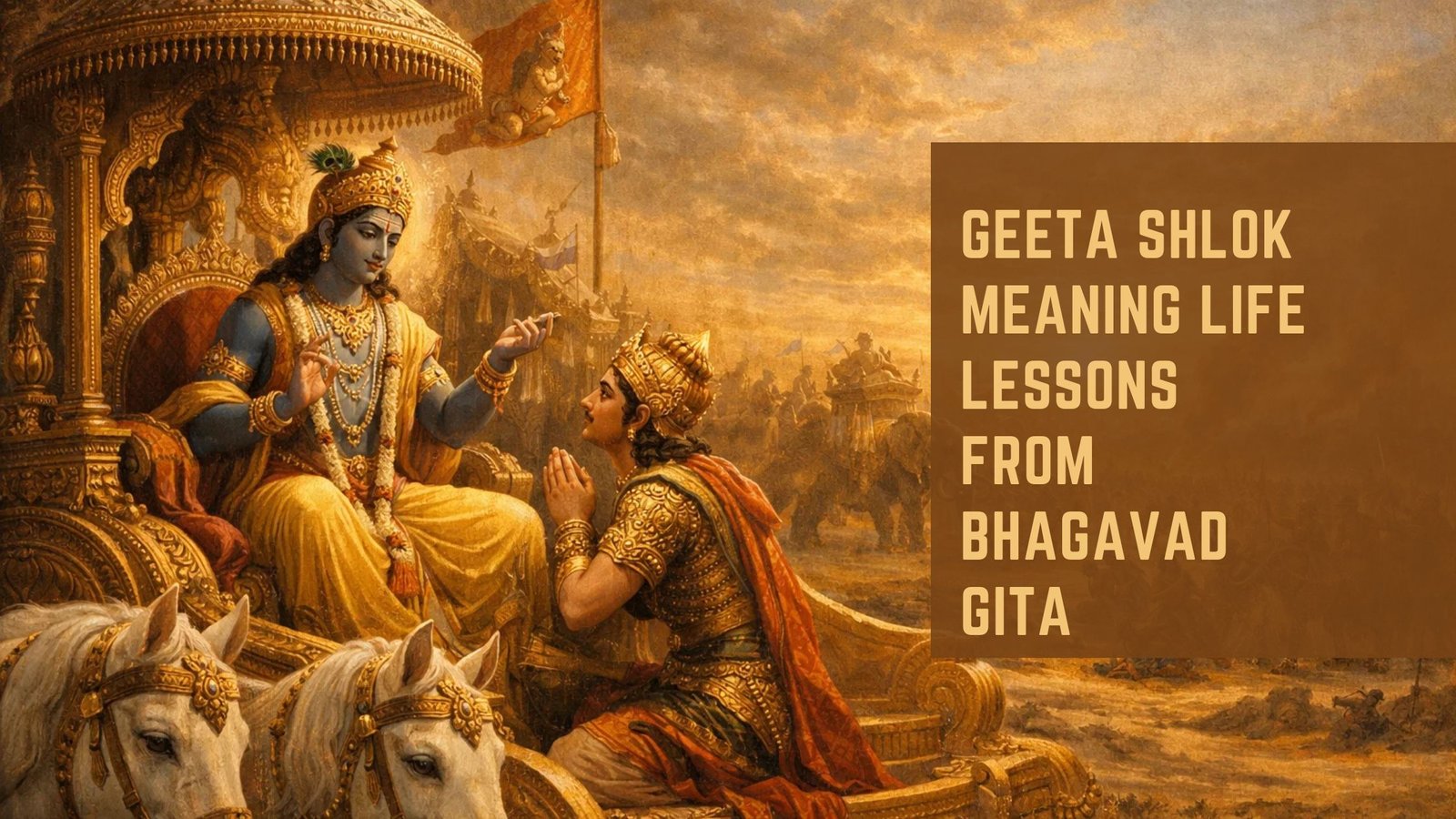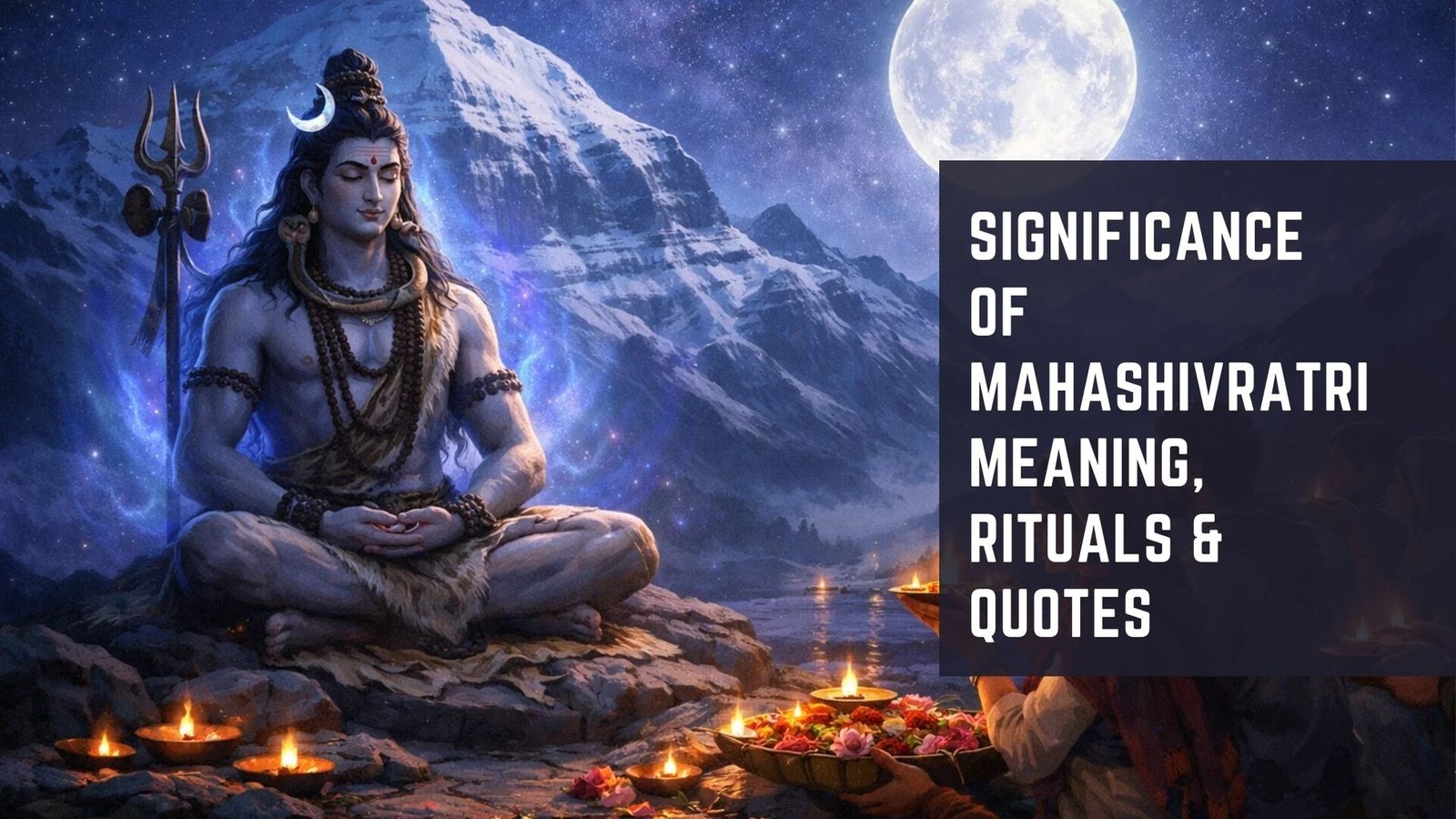The Bhagavad Gita, a revered text in Hindu philosophy, serves as a guide for individuals seeking wisdom and clarity in the midst of life’s complexities. Among its many teachings, Chapter 2, Verse 47 stands out for its profound insights into the nature of action and the importance of focusing on one’s duty without attachment to the results. This verse encapsulates the essence of karma yoga, or the yoga of action, emphasizing that individuals should perform their responsibilities with dedication while remaining detached from the fruits of their labor.
This principle resonates deeply in a world often characterized by chaos and uncertainty, offering a pathway to inner peace. In this verse, Lord Krishna imparts a timeless lesson to Arjuna, who is torn between his duty as a warrior and his moral dilemmas regarding the battle ahead. Krishna’s guidance encourages individuals to engage fully in their actions while relinquishing the need for specific outcomes.
This teaching is not merely philosophical; it is a practical approach to navigating life’s challenges. By understanding and internalizing this message, individuals can cultivate resilience and tranquility, even when faced with tumultuous circumstances.
Key Takeaways
- Bhagavad Gita 2.47 emphasizes the importance of performing one’s duty without attachment to the results.
- “Finding Peace in Chaos” involves understanding that external circumstances do not have to dictate our inner state of being.
- Applying the teachings of Bhagavad Gita 2.47 in daily life requires focusing on the process rather than the outcome of our actions.
- Techniques for achieving inner peace in the midst of chaos include mindfulness, meditation, and self-reflection.
- Overcoming obstacles and challenges through Bhagavad Gita 2.47 involves maintaining a sense of detachment and acceptance of the present moment.
Finding peace amidst chaos is a concept that resonates with many in today’s fast-paced world. The relentless demands of modern life often lead to stress and anxiety, making it difficult for individuals to maintain a sense of calm. The teachings of the Bhagavad Gita, particularly in verse 2.47, provide a framework for achieving serenity despite external turmoil.
This idea hinges on the understanding that chaos is an inherent part of existence; rather than resisting it, individuals can learn to navigate through it with grace and composure. The essence of finding peace in chaos lies in recognizing that external circumstances do not dictate one’s internal state. By focusing on the present moment and committing to one’s duties without attachment to outcomes, individuals can cultivate a sense of stability.
This approach encourages a shift in perspective—viewing challenges not as obstacles but as opportunities for growth and self-discovery. In doing so, one can foster resilience and maintain a tranquil mind, even when surrounded by uncertainty.
Integrating the teachings of Bhagavad Gita 2.47 into daily life requires conscious effort and practice. It begins with an awareness of one’s thoughts and actions, recognizing when attachment to outcomes leads to stress or disappointment. By embracing the principle of performing one’s duty without fixation on results, individuals can experience a profound shift in their approach to challenges.
This practice encourages a sense of freedom, allowing individuals to engage fully in their tasks without the burden of expectation. Moreover, applying this teaching involves cultivating mindfulness in everyday activities. Whether at work, home, or in relationships, individuals can focus on the process rather than the end goal.
This shift not only enhances productivity but also fosters a deeper connection to the present moment. By immersing oneself in the task at hand and letting go of worries about future outcomes, individuals can experience greater satisfaction and fulfillment in their endeavors.
Techniques for achieving inner peace in the midst of chaos
Achieving inner peace amidst chaos requires intentional practices that nurture tranquility and resilience. One effective technique is mindfulness meditation, which encourages individuals to observe their thoughts and feelings without judgment. By dedicating time each day to sit quietly and focus on the breath, individuals can cultivate a sense of calm that permeates their daily lives.
This practice aligns with the teachings of the Bhagavad Gita by promoting awareness and presence, allowing individuals to engage with their duties more fully. Another valuable technique is journaling, which provides an outlet for processing emotions and thoughts. Writing about daily experiences can help individuals gain clarity and perspective on their challenges.
By reflecting on their actions and feelings, they can identify patterns of attachment or anxiety related to outcomes. This self-awareness fosters a deeper understanding of oneself and encourages a more detached approach to life’s uncertainties, echoing the wisdom found in Bhagavad Gita 2.47.
The teachings of Bhagavad Gita 2.47 offer powerful tools for overcoming obstacles and challenges that life presents. When faced with difficulties, individuals often become overwhelmed by fear or doubt regarding their abilities to succeed. However, by embracing Krishna’s message of focusing on action rather than results, they can shift their mindset from one of fear to one of empowerment.
This perspective allows them to confront challenges with courage and determination. Moreover, understanding that obstacles are part of the journey can transform one’s approach to adversity. Instead of viewing setbacks as failures, individuals can see them as opportunities for learning and growth.
This mindset aligns with the principles outlined in the Bhagavad Gita, encouraging individuals to remain steadfast in their duties while accepting that outcomes may vary. By cultivating resilience through this lens, they can navigate life’s challenges with grace and confidence.
Cultivating a mindset of detachment and acceptance

Cultivating a mindset of detachment and acceptance is essential for embodying the teachings of Bhagavad Gita 2.47. Detachment does not imply indifference; rather, it signifies an understanding that one’s worth is not tied to external achievements or failures. By recognizing that life is inherently unpredictable, individuals can learn to accept whatever comes their way with equanimity.
This acceptance fosters a sense of peace that transcends external circumstances. To nurture this mindset, individuals can practice gratitude regularly. This practice reinforces the idea that fulfillment comes from within rather than from external validation or success.
As they cultivate gratitude, they become more adept at accepting life’s ups and downs without becoming overly attached to specific outcomes.
Finding balance and harmony in the face of adversity
| Aspects | Metrics |
|---|---|
| Physical Health | Exercise, Nutrition, Sleep |
| Mental Health | Mindfulness, Meditation, Therapy |
| Emotional Well-being | Self-care, Gratitude, Positive affirmations |
| Social Connections | Family, Friends, Community involvement |
| Work-Life Balance | Time management, Boundaries, Prioritization |
Finding balance and harmony in the face of adversity is a crucial aspect of living in accordance with the teachings of Bhagavad Gita 2.47. Life’s challenges often disrupt equilibrium, leading individuals to feel overwhelmed or disoriented. However, by embracing Krishna’s wisdom, they can learn to navigate these turbulent waters with poise and clarity.
This balance is achieved through a combination of self-awareness, mindfulness, and intentional action. One effective way to maintain balance is through establishing routines that prioritize self-care and reflection. Engaging in regular physical activity, practicing mindfulness techniques, or dedicating time for creative pursuits can help individuals ground themselves amidst chaos.
These practices not only promote physical well-being but also foster mental clarity and emotional stability. By creating a harmonious environment within themselves, individuals are better equipped to face external challenges with resilience.
In conclusion, embracing the teachings of Bhagavad Gita 2.47 offers individuals a pathway to a peaceful and fulfilling life amidst chaos and uncertainty. By focusing on action without attachment to results, they can cultivate resilience and tranquility in their daily lives. The principles outlined in this verse encourage self-awareness, mindfulness, and acceptance—essential tools for navigating life’s complexities.
The journey toward inner peace is ongoing; however, by embodying the wisdom of the Bhagavad Gita, they can create a foundation for lasting fulfillment and harmony in an ever-changing world. Ultimately, this ancient text serves as a timeless reminder that true peace comes from within—an understanding that empowers individuals to embrace life’s uncertainties with courage and confidence.
Today’s verse from the Bhagavad Gita reminds us of the eternal wisdom found within its pages. As we reflect on the teachings of Lord Krishna, we are reminded of the universal guidance that this sacred text offers. In a related article, “The Eternal Wisdom of the Bhagavad Gita,” we delve deeper into the profound insights that can be gained from studying this timeless scripture. Through understanding the nature of man and the purpose of life, we can find clarity and direction in our own spiritual journey. To read more about the wisdom of the Bhagavad Gita, check out this article.
FAQs
What is the Bhagavad Gita?
The Bhagavad Gita is a 700-verse Hindu scripture that is part of the Indian epic Mahabharata. It is a sacred text of the Hindu religion and is considered one of the most important spiritual classics.
What is the significance of the Bhagavad Gita verse for today?
The Bhagavad Gita verse for today is a verse from the scripture that is chosen for reflection, meditation, and inspiration for the day. It is believed to provide guidance and wisdom for daily life.
How is the Bhagavad Gita verse for today chosen?
The Bhagavad Gita verse for today is often chosen randomly or based on a specific theme or intention for the day. It can be selected by individuals for personal reflection or by spiritual leaders for communal practice.
What are some common themes in the Bhagavad Gita verses?
Common themes in the Bhagavad Gita verses include duty (dharma), righteousness, the nature of the self, the path to spiritual enlightenment, and the concept of karma (action and its consequences).
How is the Bhagavad Gita verse for today used in practice?
The Bhagavad Gita verse for today is often used for personal reflection, meditation, and as a source of inspiration for daily life. It may also be recited or discussed in communal settings such as temples, yoga studios, or spiritual gatherings.














